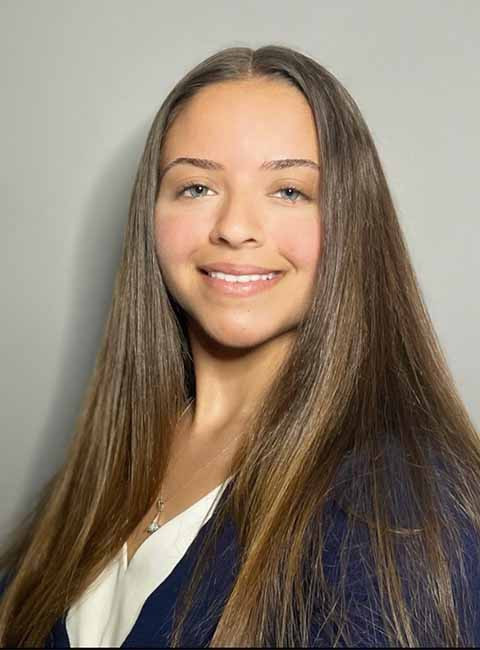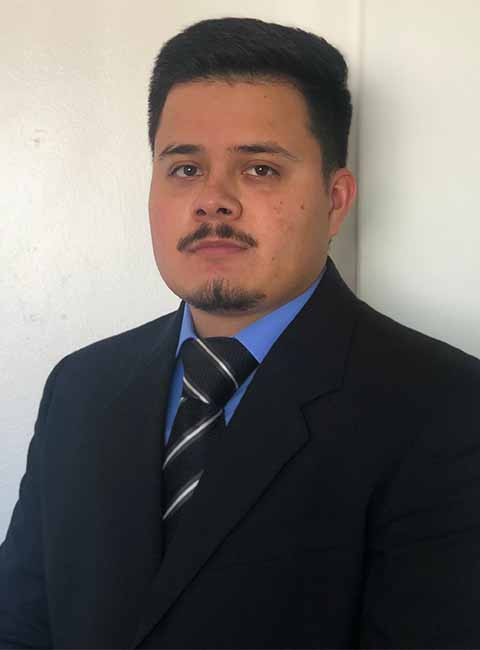
The TRB Minority Fellows Program, established by The Transportation Research Board (TRB) and the U.S. Federal Highway Administration (FHWA) in 2010, aims to actively explore research, ideas and solutions from diverse perspectives. This program seeks to increase the number of underrepresented communities in the transportation field and in TRB activities.
In celebration of our commitment to developing future transportation leaders and in honor of our former President and CEO, Lance Neumann, Cambridge Systematics launched an annual scholarship program in 2021 to help two TRB Minority Student Fellows travel to and attend the TRB Annual Meeting to present their research.
Introducing our scholarship recipients for 2023: Leonor Reyes and Ossiris Rodriguez. We had the opportunity to ask Leonor and Ossiris about their research and the changes they hope to see in transportation.

Leonor Reyes.

Ossiris Rodriguez.
What are you presenting at TRB and where can we find you during the conference?
Ossiris: The number of pedestrian deaths from motor vehicle crashes in the United States has risen 59% since 2009. Researchers have been studying crash characteristics such as the people, vehicles, and roadways involved to understand this sharp increase. But where are these fatalities occurring and what spatial characteristics of these locations could be influencing this trend? I will be presenting my research on this topic during the TRB Minority Student Fellows Poster Session. Come by and ask questions! I am looking forward to discussing my research with everyone and receiving input from others at the conference.
Leonor: Mitigating secondary crashes is one of the main priorities of traffic incident management. However, limited information on secondary crashes may impede appropriate mitigation efforts. My presentation at the TRB Minority Student Fellows Poster Session aims to investigate the spatiotemporal gaps (i.e., distance and time gaps) between secondary crashes and primary incidents. See you there!
What drew you to this field and how can firms like CS reach more students seeking a career in transportation?
Ossiris: When I first began pursuing my degree in civil engineering, I was not sure which sub-concentration would interest me the most. This changed when I took my first transportation engineering class. I found myself looking forward to that class every day and was completely engaged during the lectures. In that class, I was drawn to the design aspects of transportation and understanding how to make transportation systems safer and more efficient. I am now the President of the Institute of Transportation Engineers student chapter at my school where I help organize events for our members to share my passion for the field and inspire their interest in the transportation sector as well.
Firms like Cambridge Systematics can reach more students about a career in transportation by tabling at school of engineering job fairs and engineering conferences. Additionally, getting in contact with the departments of civil engineering at schools to send out emails to the whole student body when any job/internship opportunity is available is great way to reach more students (this is how I was able to land my current internship!)
Leonor: My father works with Project Managers and Civil Engineers and would always speak very highly of them. He motivated me to try out the major in college, and I’ve enjoyed it ever since! I think that it would be beneficial to integrate firms like CS into college campuses more by sending guest speakers to host informational sessions, explaining what you do and how students benefit from working in freight and economics, modeling and analytics, planning and management, software and tools, and transit and shared mobility.
The theme of TRB’s Annual Meeting this year is Rejuvenation Out of Disruption: Envisioning a Transportation System for a Dynamic Future. What kinds of changes do you hope to see in transportation in the next 10 years?
Ossiris: I hope to see more cities in the U.S. adopt urban planning methods that help to reduce dependency on cars. For example, transit-oriented developments have high walkability and reduce dependance on vehicles. Increasing bicycle infrastructure in cities is also a change I hope to see, with more connected bicycle networks where people feel safe. This can help increase bicycle usage and provide another mode of commuting.
Leonor: I hope to see more women in transportation – but not just in the field – I would like to see more of them in higher positions of power. Rejuvenation out of disruption is a cool theme that speaks to how the transportation industry can be refreshed. An additional change I would like to see is more emphasis from college programs on how diverse transportation is and how it’s part of our everyday lives. We use roadways and signals all the time, and we’d be a mess without them!
College/university:
Ossiris: The University of New Mexico
Leonor: Florida International University
Major and anticipated graduation date:
Ossiris: Civil Engineering—May 2023
Leonor: Civil Engineering— April 2023
Check out Ossiris’ and Leonor’s presentations during the TRB Minority Student Fellows Poster Session
January 10th, 2023
10:15am-12:00pm
Convention Center, Hall A
Ossiris: Longitudinal Spatial Trends in U.S. Pedestrian Fatalities, 1999–2020
Leonor: Investigating Factors That Influence the Spatio-Temporal Gaps Between Primary Incidents and Secondary Crashes
Thank you, Ossiris and Leonor, for sharing your insights with us. We hope you have a wonderful time at the TRB Annual Meeting, and we can’t wait to hear about what you accomplish in the next steps of your transportation careers!